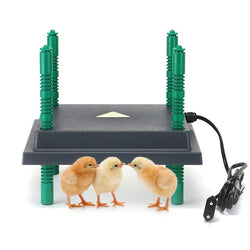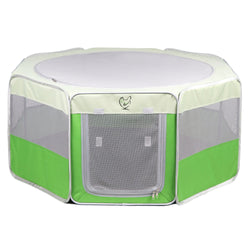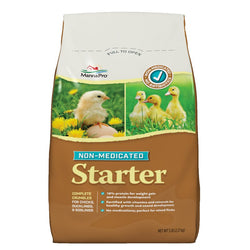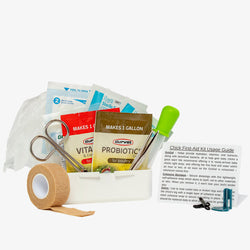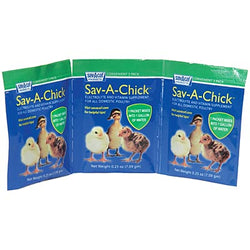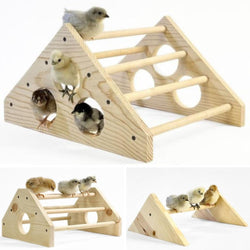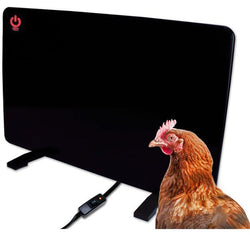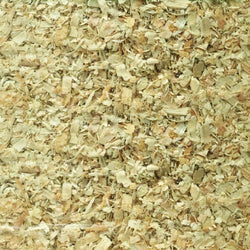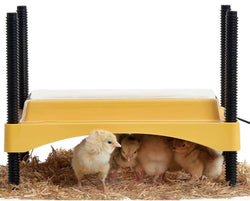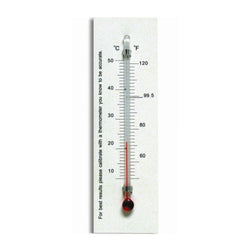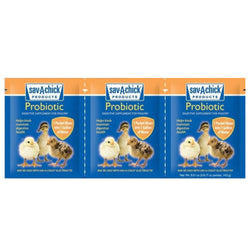All about Avian Encephalomyelitis disease
Back to blog
Avian encephalomyelitis (AE) is a neurological disease that causes symptoms that are similar to many other diseases. Some improper flock management practices (including incorrect use of supplements or nutritional deficiencies) can also lead to comparable symptoms, so you may need a veterinarian to provide a firm diagnosis. There is no treatment for the virus that causes AE, and while birds that recover do not continue to be lifelong carriers of the virus, their egg laying frequency will likely be diminished. There are steps you can take to reduce your flock's risk of spreading the disease among itself. Read on to find out more:
Avian encephalomyelitis Also called
AE, epidemic tremor, New England Disease, Star-gazing Syndrome
Prevalence
Rare
Signs
General signs -
Adult birds: slight drop in egg laying, poor egg hatchabilty, death in chicks. Chick death is preceded by loss of coordination, inability to stand, head shaking and other neurological issues. Chicks suffering from this illness can be trampled by other chicks, and may find it difficult to eat.
Cardinal or diagnostic signs -
Must be diagnosed in the laboratory.
Cause/s
Viral - Picornaviridae
Communicability
Yes. It can be passed from hen to chick in ovo. It is also shed in droppings for more than two weeks, which can spread the illness to other flock members.
Communicability to humans
No.
Incubation period
5 - 14 days
Latent
No. Chickens who survive the illness become immune and don�t carry the illness for life. However, the virus may be shed in droppings (or in eggs, resulting in sick chicks) for more than two weeks after symptoms cease, and survivors are unlikely to lay well.
Endemic
It can be carried by wild birds, including turkey, guineafowl, quail, pheasants, etc.
Home treatment and/or prevention
Prevention: Practice good biosecurity, and make sure you don�t carry anything in in your shoes (from the feed store, for example, or from another flock). Purchase only from NPIP facilities. This goes for hatching eggs, too, since the illness can be passed in ovo from hen to chick. Follow the recommended 30-day quarantine when adding new birds to your flock.
Treatment: There is no treatment for infected birds. You can reduce mortality by separating affected chicks so they don�t get trampled, and making sure the chicks continue to eat and drink while ill. (This can be a problem if they�re having trouble standing or walking to feed and water.) Be sure to keep them quarantined from other flock members until they�re no longer at risk from shedding the virus. If your birds have this illness, be responsible and considerate of others by sanitizing shoes or equipment, especially when going to the feed store, the vet, or any place you�re likely to encounter birds that can get ill from this virus.
Veterinary care
Safe and effective vaccines are available from your vet; however, there is no treatment for birds that are ill. Since this is a relatively rare illness, talk to your vet or your local extension agent about whether a vaccine is recommended in your area.
Recovery
As described above, AE is usually mild in adult birds; however, it will reduce laying and will be passed from hen to chick through the egg. Chicks can be nursed to increase their chances of survival, and they will not become permanent carriers. However, survivors are likely to have reduced laying when they mature.
Other conditions, illnesses and/or diseases with similar signs:
Congenital tremor, encephalomalacia, encephalitis, listeriosis, Marek�s, Newcastle, various vitamin deficiencies (esp. A, D, E, riboflavin). If you offer electrolytes to your birds, be sure to double and triple check how much you are giving them. Poisoning can occur when an electrolyte solution is given to chicks or chickens in a form that is too concentrated; the symptoms may resemble AE (but can also be accompanied by foaming from the mouth in severe cases). We hear of this usually once or twice a year. Many electrolyte mixtures give directions to make a gallon of �stock solution� for large flocks, and small amounts of the stock solution are meant to be diluted into the birds� drinking water. However, small flock owners may inadvertently offer the stock solution straight in a small waterer used for their small flock. Please be sure to read the directions for your electrolyte mixture very carefully.
Also consider browsing through this list of other chicken illnesses with neurological symptoms.
Avian encephalomyelitis Also called
AE, epidemic tremor, New England Disease, Star-gazing Syndrome
Prevalence
Rare
Signs
General signs -
Adult birds: slight drop in egg laying, poor egg hatchabilty, death in chicks. Chick death is preceded by loss of coordination, inability to stand, head shaking and other neurological issues. Chicks suffering from this illness can be trampled by other chicks, and may find it difficult to eat.
Cardinal or diagnostic signs -
Must be diagnosed in the laboratory.
Cause/s
Viral - Picornaviridae
Communicability
Yes. It can be passed from hen to chick in ovo. It is also shed in droppings for more than two weeks, which can spread the illness to other flock members.
Communicability to humans
No.
Incubation period
5 - 14 days
Latent
No. Chickens who survive the illness become immune and don�t carry the illness for life. However, the virus may be shed in droppings (or in eggs, resulting in sick chicks) for more than two weeks after symptoms cease, and survivors are unlikely to lay well.
Endemic
It can be carried by wild birds, including turkey, guineafowl, quail, pheasants, etc.
Home treatment and/or prevention
Prevention: Practice good biosecurity, and make sure you don�t carry anything in in your shoes (from the feed store, for example, or from another flock). Purchase only from NPIP facilities. This goes for hatching eggs, too, since the illness can be passed in ovo from hen to chick. Follow the recommended 30-day quarantine when adding new birds to your flock.
Treatment: There is no treatment for infected birds. You can reduce mortality by separating affected chicks so they don�t get trampled, and making sure the chicks continue to eat and drink while ill. (This can be a problem if they�re having trouble standing or walking to feed and water.) Be sure to keep them quarantined from other flock members until they�re no longer at risk from shedding the virus. If your birds have this illness, be responsible and considerate of others by sanitizing shoes or equipment, especially when going to the feed store, the vet, or any place you�re likely to encounter birds that can get ill from this virus.
Veterinary care
Safe and effective vaccines are available from your vet; however, there is no treatment for birds that are ill. Since this is a relatively rare illness, talk to your vet or your local extension agent about whether a vaccine is recommended in your area.
Recovery
As described above, AE is usually mild in adult birds; however, it will reduce laying and will be passed from hen to chick through the egg. Chicks can be nursed to increase their chances of survival, and they will not become permanent carriers. However, survivors are likely to have reduced laying when they mature.
Other conditions, illnesses and/or diseases with similar signs:
Congenital tremor, encephalomalacia, encephalitis, listeriosis, Marek�s, Newcastle, various vitamin deficiencies (esp. A, D, E, riboflavin). If you offer electrolytes to your birds, be sure to double and triple check how much you are giving them. Poisoning can occur when an electrolyte solution is given to chicks or chickens in a form that is too concentrated; the symptoms may resemble AE (but can also be accompanied by foaming from the mouth in severe cases). We hear of this usually once or twice a year. Many electrolyte mixtures give directions to make a gallon of �stock solution� for large flocks, and small amounts of the stock solution are meant to be diluted into the birds� drinking water. However, small flock owners may inadvertently offer the stock solution straight in a small waterer used for their small flock. Please be sure to read the directions for your electrolyte mixture very carefully.
Also consider browsing through this list of other chicken illnesses with neurological symptoms.
